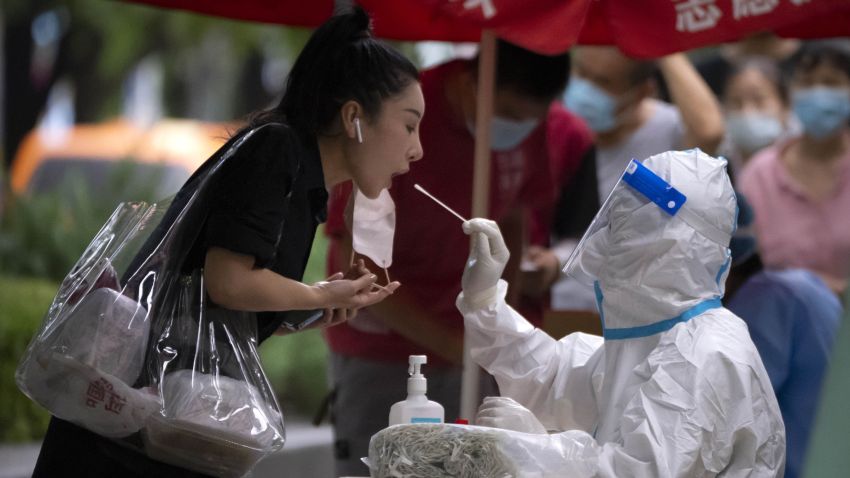Baymax, a robot character that appeared in the 2014 Pixar Animation Studios film “Big Hero Six,” was built to provide compassionate and friendly health information. With a name that sounds like a painkiller and a fluffy white body built like a soft rubber balloon to match, it’s no surprise that Baymax quickly became a popular mascot among Chinese cinemagoers and Disney fans. Round, inoffensive and cute, his image quickly became an emoticon used on social media platforms as a shorthand for empathy and kindness.
More recently, despite Disney’s mixed fortunes in the Chinese market, Baymax became an unlikely pandemic folk hero: Due to the strong resemblance between the protective gear worn by Chinese health care volunteers and the robot, the volunteers—unofficially known as dabai—were often compared to Baymax during the early days of the pandemic.
Though initially worn only by doctors, the so-called Baymax suits have since seen their use expanded to neighborhood-level cadres and health care workers conducting mass coronavirus testing. Now, however, the protective suits have become symbolic of Beijing’s top-down, restrictive pandemic control measures.

